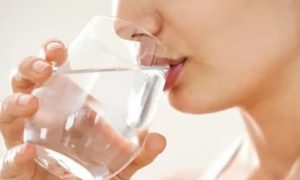Proper Hydration is vital for body function but overdoing something which is good can also have adverse effects and might also be life-threatening. Most people fall for the advice given by celebrities, who proudly reveal hydration as their beauty secret.
Nidhi S, Founder of Half Life to Health says, “Drinking too much water puts pressure on your kidneys and leads to water intoxication and electrolyte imbalances. If the kidneys are unable to process the fluid present in the body that fluid will stay within the organs, causing them to swell. If not corrected, such a situation disrupts brain functions, and liver and kidney problems and might lead to heart failure.” She further adds, “In short, excess water removes essential salts like Sodium from the body, leading to hyponatremia, a life-threatening condition usually experienced by endurance runners and athletes.”
Yes, too much water is harmful to the body and you heard me right!
Are you consuming too much water? Note these signs
- Very pale or clear urine at frequent intervals
- Frequent bathroom trips or the urge to urinate frequently
- Excess fluid accumulated in the body causing diarrhoea and (or) vomitings to reduce the pressure on the Kidneys
- Tiredness due to overload on the kidneys
- Experiencing weak muscle, cramping due to sodium imbalance
If you are facing any or some of these symptoms, you might need to check your water intake to eliminate the possibility of overhydration.
So, how much water should you drink?
According to the US National Academies of Sciences, a normal person’s water intake should be:
- Man – 3.7 litres a day
- Woman – 2.7 litres a day
But, the above recommendation has to be altered based on climatic conditions like temperature, humidity, level of activity and age:
- Breastfeeding/pregnancy – the water intake has to be increased to meet the additional fluid required for lactation
- Environment – hot and humid climates demand more water due to the higher rate of sweating
- Activity levels of the body – the fluids lost during activity need to be replaced. The best way to implement it is to take small sips of water during the workout
- Health conditions like fever, and vomiting – Increase the water intake and add electrolytes to meet the depleting salt requirements.
A healthy intake of water can easily be maintained by listening to your body. Our bodies give clear signs of thirst. Drink when you are thirsty and keep a check on the colour of your urine. It should not be dark yellow. If so, try increasing your water intake by a couple of glasses. Bad breath can also signal that you are not drinking enough water.
You can also use the bottles which have markings over them to remind you about water intake and not to overdo it. Further, making use of technology, and using reminders on your watch/mobile is also a good idea for busy professionals.



































